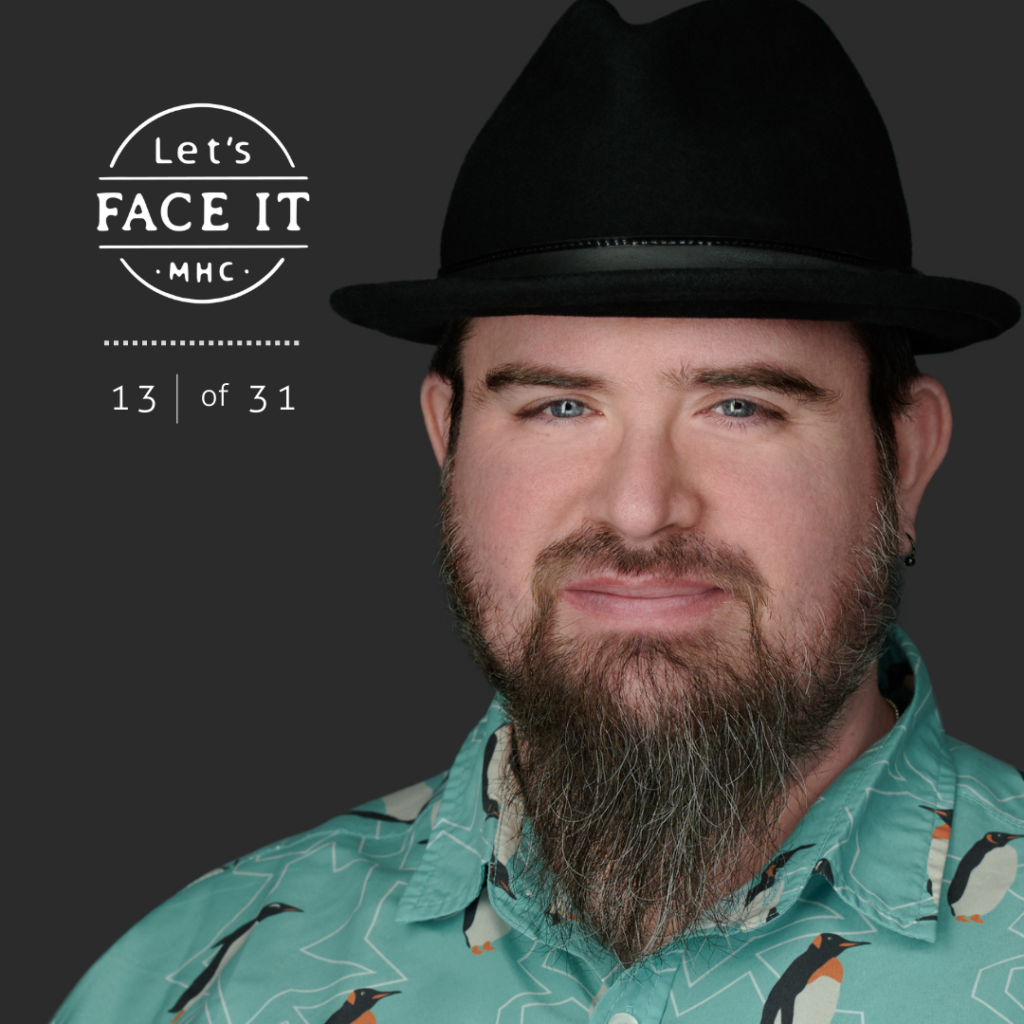 Dustin Sclafani knows what it’s like to be on the outside. “My whole life has been a little off center,” says the singer known as EZ BlueZ in the band Shame Penguin. “No one was telling my stories, with how I look and living in a suburban community and trying to pretend we were middle class and we weren’t. I was constantly acting. Stories where people thought I could relate, I couldn’t. You feel very alone. The only place I found was listening to music. My mom was a singer. She taught me to sing while I was learning how to talk.”
Dustin Sclafani knows what it’s like to be on the outside. “My whole life has been a little off center,” says the singer known as EZ BlueZ in the band Shame Penguin. “No one was telling my stories, with how I look and living in a suburban community and trying to pretend we were middle class and we weren’t. I was constantly acting. Stories where people thought I could relate, I couldn’t. You feel very alone. The only place I found was listening to music. My mom was a singer. She taught me to sing while I was learning how to talk.”
Part of Sclafani’s outsider status in 1978 came from being raised by a young single mother. “That was not the statistical norm,” Sclafani says. “You’re supposed to play catch with your pops and do all these things I didn’t do so I always knew I was going to be different.”
“You learn that your own truth is not valid. That it’s just about the story or presentation that’s in front of people,” he continues. “You learn to be deceptive and that your own feelings don’t matter and that you’ll never be good enough.”
Sclafani’s family life was additionally complicated by addiction. “I was losing more and more of who I was,” he says of his mother’s challenges, especially after his brother and sister were born when he was still a boy himself at the ages of 9 and 11. “I became the other parent.”
“That’s where the stigma comes through,” he says. “On top of that you didn’t talk about these things. Not only did I not talk about these things but without a father, I had to be three times stronger than the guy next to me.”
The challenges and secrets and hiding what was really going on affected Sclafani over time. “When you are vulnerable you are showing how strong you are, but we’re so twisted as society we change that,” he says, admitting he has tried to kill himself three times and that he joined the Army so that his family could get the death benefit if he died in battle.
“I considered myself a failure at 28 because I hadn’t made it into the 27 Club,” he says. (The 27 Club stems from the fact that a number of musicians and other artists died at 27, often as a result of drug and alcohol overdoses. “Members” include Jimi Hendrix, Jim Morrison, Amy Winehouse, and Kurt Cobain.)
Sclafani wanted to share his story here because he wants people to talk more about their struggles and feelings. “I’m here to try to talk to people,” he says. “A lot of people don’t know I struggle. I can diffuse any situation with humor.”
Sharing struggles and perceived weaknesses is critical, Sclafani says, to creating a society that is more cohesive and accepting. He is hopeful that is beginning to happen. “I think more people are being upfront and honest,” he says. “As toxic as Tik Tok can be, a lot of people have shared their mental health journey there. It’s the plumber guy down the road rather than just millionaire stars. That has been huge.”
“We need to understand that the fight is not about socking someone in the mouth but standing shoulder to shoulder with them no matter what, showing unconditional love even when you don’t understand,” Sclafani says. “I think that’s where we need to move as a society. We need to show that we’re not afraid of uncomfortable conversations. There needs to be a lot of uncomfortable conversations. We can all be vulnerable together.”
Recently, Dustin interviewed MHC’s Suzi Craig for his videocast, where they talked more about stigma and mental health. Check it out here: Behind the Brand with Prestige and EZBlueZ
Each day in May, you will meet a new face and a new lived experience, because #LetsFaceIt there is no one-sized fits all when it comes to our wellbeing. View past posts here.
Looking for resources or support in CT but don’t know where to start? Contact MHC’s free Information & Referral line: https://www.mhconn.org/education/information.


